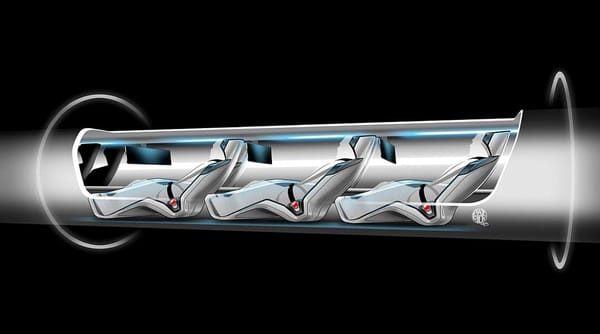Is Elon Musk Big Brother?
...and would this article tell the truth if he were? Elon Musk’s Orwellian aspirations and why you absolutely, definitely want one of his chips in your brain.

Our story begins with the jellyfish, the first animal to have a nervous system – or rather a nervous net. An animal without a nervous net can’t respond to its environment, so its odds of survival could be likened to flipping a coin. Having one was a real breakthrough. Later on, the flatworm developed a central nervous system, realizing that it was more efficient to turn decision making into a centralised process.
From that point on, the animal nervous system grew and matured, gaining the limbic system, the neocortex, and more blocks that would eventually form the brains of the first humans. One of those humans, approximately 50,000 years ago, came up with the idea of associating sounds with physical objects – language – and our collective knowledge as a species took a giant leap. Then came writing, and human progress became seemingly exponential, continuing to this day. Yet according to one man, we aren’t developing quickly enough: enter Elon Musk.
“When it comes to communication we’re using millennia old technology to get our ideas across”
50,000 years have passed since that memorable discovery; humanity has been to the moon and possesses the power to destroy the very planet it was born on. Yet when it comes to communication, we’re using millennia old technology to get our ideas across. The idea behind brain-machine interfaces is that there must be a faster way to exchange thoughts than reading and writing. This is where Neuralink comes into play: it promises to free humanity from the need to verbalize our thoughts and allow multiple brains to work on problems without the need for explicit communication as if they were one. Musk calls this “essentially consensual telepathy”.
Neuralink’s first products are to be implants restoring motor skills to those that lost them to severe brain injuries, but just like humanity itself they are set to develop far beyond that Seemingly, Musk’s vision entails humanity becoming a species of invisible cyborgs. Sounds great, but where’s the catch?
Arguably, Neuralink is Musk’s most ambitious venture to date. For one, the human brain remains the most powerful and versatile supercomputer in the known universe, running on less power than most laptops. A good explanation for why we have such a hard time understanding our brains boils down to this quote by Dr. Moran Cerf, “If the human brain were so simple that we would understand it, we would be so simple that we couldn’t”.
“It turns out not everyone is ready to jump the gun on becoming a cyborg just yet”
Ultimately, the greatest challenge we may face as a species could be understanding not some outlandish technology, but rather ourselves.
Technological hurdles aside, it turns out not everyone is ready to jump the gun on becoming a cyborg. In a 2016 survey, 69% of Americans stated that they were “worried” by the prospect of brain chip implants for improved cognitive abilities. Often associated with a loss of privacy, brain implants still generate more scepticism than anything else at the intersection of tech and biology. Elon Musk claims to be no Orwellian Big Brother, but whether anyone will believe that remains to be seen.
The world is becoming increasingly more digital, but the question remains of whether digitalizing our thoughts is the natural next step in that evolution.
The fact that someone is determined enough to try and find out is something to cherish.








